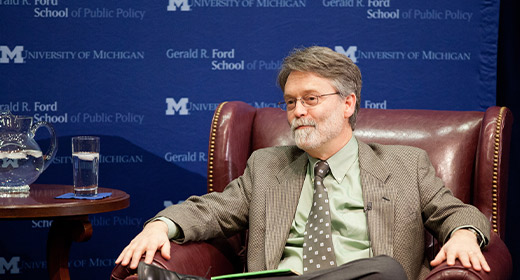
According to an analysis conducted by Bloomberg BNA, a division of Bloomberg, some 40 different groups spent money in the first three months of 2014 to lobby Congress on the minimum wage bill. Labor unions were for the bill; business groups were against it; but others, including religious groups, companies, and at least one major metropolitan area, also got involved. While the minimum wage bill stalled in April, it may return for a vote in the coming months.
Professor Richard Hall, a nationally recognized expert on interest group lobbying, was interviewed by Bloomberg BNA writer Chris Opfer in Diverse Lobbying Interests Come to Light in Stalled Debate over Minimum Wage Bill. "What you see is most of the money goes to legislators that would already support the [lobby's position] anyway," Hall said. "What they are trying to do is get access to those members and remind them how big the issue is in their districts."
In addition to these direct lobbying efforts, interest groups may have also made campaign contributions to legislative gatekeepers, Hall says, noting that the individual interest group actions are probably part of a larger concerted effort. "Coalitions don't develop spontaneously," Hall told Bloomberg BNA. "If I'm one of the leaders on this, I'm trying to get as many and as different kinds of groups to back this as I can."
Richard Hall is a professor of political science and public policy at the University of Michigan. He is the author of Participation in Congress (1996, Yale University Press), winner of the American Political Science Association's Richard F. Fenno Prize for the best book on legislative studies.